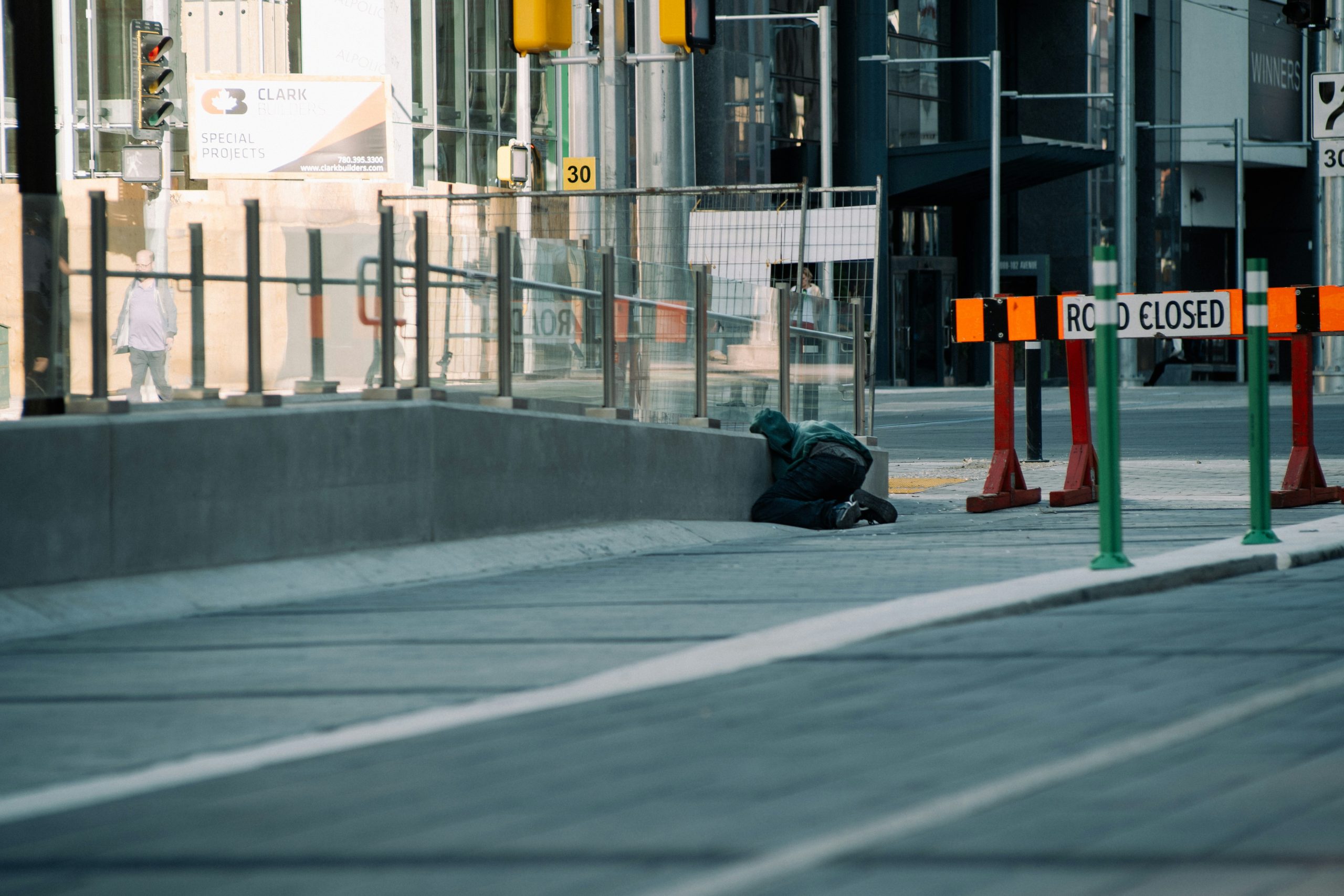Welcome to our latest blog post at Soledad House, where compassion meets expertise in the fight against addiction. As a sanctuary for women struggling with substance abuse, we dedicate our efforts to not only treating addiction but also understanding its roots and impacts, particularly in the lives of women.
Today, we’re shedding light on a critical and escalating issue affecting our community and the nation at large—fentanyl addiction among women. This potent synthetic opioid has quickly become one of the most dangerous drugs on the streets, contributing to an alarming rise in overdose deaths. Recent data reveals that the number of women grappling with fentanyl addiction has seen a dramatic increase, reflecting a broader epidemic that silently erodes lives, families, and communities.
In this post, we’ll explore why fentanyl is particularly dangerous, how its addiction impacts women differently, and what can be done to address this growing crisis. We invite you to read on and join us in understanding and fighting this formidable challenge together.
What Is Fentanyl?
Fentanyl is a synthetic opioid, initially developed to treat intense pain from ailments like cancer. It is 50 to 100 times more potent than morphine, making even a small dose extremely dangerous. This potency significantly heightens the risk of overdose, particularly for individuals who might not know they are ingesting it. Fentanyl is often mixed with other drugs, enhancing its euphoric effects but also dramatically increasing the likelihood of a fatal overdose. The drug’s high potency also leads to a rapid onset of addiction, as the body quickly becomes accustomed to its powerful effects, necessitating larger or more frequent doses to achieve the same high or avoid withdrawal symptoms.
How Fentanyl Addiction Affects Women Differently
The journey into and through addiction can be markedly different for women, influenced by both biological and social factors. Biologically, women may become dependent on substances like fentanyl more quickly than men, and they often experience more intense cravings and withdrawals. Hormonal fluctuations throughout a woman’s life can complicate addiction, affecting how drugs metabolize and the severity of addiction.
Socially, women with substance abuse issues often face greater stigma than men. This can lead to increased feelings of shame and isolation, making it more difficult for them to seek help. They are also more likely to have histories of trauma or domestic abuse, which can exacerbate mental health disorders and complicate their relationship with substances like fentanyl.
Additionally, women are often primary caregivers and may fear seeking treatment due to potential repercussions like custody loss. This situation creates a complex web of challenges that require specially tailored interventions and support systems to address effectively. At Soledad House, we recognize these unique needs and design our treatment programs to help women navigate these challenges safely and effectively.
Choosing the Right Treatment
At Soledad House, we understand that overcoming addiction requires a tailored approach, especially when it comes to treating women with fentanyl addiction. We offer a range of treatment options designed to meet the unique needs of each individual while fostering strength and resilience within a supportive community. Here’s an overview of our primary treatment programs:
Intensive Outpatient Program (IOP)
Our Intensive Outpatient Program offers a flexible treatment option that allows women to receive therapy and support while maintaining their daily responsibilities such as work or family care. This program is ideal for those who have completed a more intensive treatment phase like PHP or for women who require a structured recovery environment but have stable living conditions. The IOP focuses on relapse prevention, mental health management, and coping strategies through group and individual counseling sessions conducted several times a week.
Partial Hospitalization Program (PHP)
The Partial Hospitalization Program provides a more rigorous level of care without the need for full hospitalization. This program is suited for women who need substantial support and medical monitoring but do not require 24-hour supervision. PHP typically involves daily sessions that cover medical treatment, psychotherapy, and group support, offering a structured environment that helps bridge the gap between inpatient care and outpatient treatment.
Structured Living
For those in need of a safe, drug-free environment to support their recovery, our Structured Living option offers residential accommodations. These facilities are designed to promote sobriety and personal development through community living. Residents participate in regular therapy sessions and life skills workshops, all while building a supportive network with other residents facing similar challenges.
A Holistic Approach
Across all our programs, we emphasize a holistic approach to recovery that includes medical treatment, mental health counseling, and community support. We address not only the physical aspects of addiction but also the emotional and psychological factors. Our comprehensive care model integrates strategies for managing stress, building resilience, and developing healthy relationships, all crucial for sustained recovery.
By choosing Soledad House, you are not just selecting a treatment program; you are choosing a pathway to recovery tailored to the unique needs of women. Our dedicated team is committed to providing the support and care necessary to help each woman build a foundation for a drug-free life, empowered by therapy, supported by peers, and inspired by personal growth.
If you or a loved one is struggling with fentanyl addiction, we urge you to reach out today. Let us help you take the first step towards a healthier, happier future.
How to Get Help
If you or someone you love is battling fentanyl addiction, taking the first step toward recovery might feel overwhelming, but it’s a crucial move toward a healthier future. Here’s how you can begin:
- Reach Out for Information: Contact Soledad House directly via our website, email, or by phone. Our responsive team is ready to answer any questions you have about our programs and the admissions process.
- Schedule a Consultation: Set up an initial consultation with one of our addiction specialists to discuss your specific situation in detail. This can be done over the phone, online, or in person, providing you with flexibility and privacy.
- Assessment and Evaluation: Through a comprehensive assessment, we’ll tailor a treatment plan that addresses the unique needs of the woman in need, ensuring the best approach to her recovery.
- Begin the Journey: Once a treatment plan is established, we’ll guide you through the admissions process to start the designated program, whether it be IOP, PHP, or Structured Living.
Our team at Soledad House is dedicated to providing a nurturing environment that empowers women to achieve and maintain sobriety. We understand the courage it takes to seek help, and we’re here to support you every step of the way.
Get Help Today! Contact Us
Act Now: Don’t wait to take back control of your life. Contact Soledad House today to schedule your consultation or to simply talk to a member of our caring staff about our specialized programs for women overcoming fentanyl addiction. Recovery is a journey that begins with a single, brave step forward—we’re here to take that step with you.
FAQs
What are the signs of fentanyl addiction in women?
Look for sudden changes in behavior, such as increased secrecy, social withdrawal, mood swings, and unexplained financial problems. Physically, there may be signs like weight loss, frequent drowsiness, changes in sleep patterns, and flu-like symptoms during withdrawal periods.
How long does treatment typically last for women with fentanyl addiction at Soledad House?
The duration of treatment varies depending on the individual’s specific needs and the severity of the addiction. Typically, IOP might range from 3 to 6 months, PHP could be from 1 to 3 months, and Structured Living may extend up to 12 months. We personalize each treatment path to maximize its effectiveness.
Can I visit my loved one during her treatment at Soledad House?
Yes, family involvement is encouraged as it is crucial to the recovery process. We have specific visiting days and family therapy sessions designed to facilitate support and understanding between clients and their loved ones.
What kind of support can families expect from Soledad House?
Soledad House offers extensive family counseling and educational programs that help families understand the dynamics of addiction and the best ways to support their loved one during recovery. These programs aim to heal relationships and build a strong support network essential for long-term recovery.
Is there follow-up support after completing a treatment program?
Absolutely. We provide robust post-treatment support including alumni groups, ongoing counseling, and relapse prevention strategies. These resources are designed to help women maintain their sobriety and continue their recovery journey confidently and securely.





